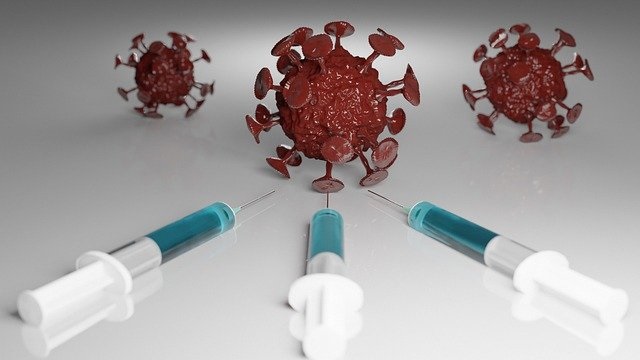Scientists are currently developing a COVID-19 nanoparticle vaccine that only requires a single dose without the need for strict transport and storage conditions, unlike current approved and available COVID-19 vaccines.
The COVID-19 pandemic has seen over 63 million confirmed cases and over 1 million deaths globally. Ever since the start of the pandemic, the development of a safe and effective vaccine against SARS-CoV-2 – the coronavirus responsible for COVID-19 – has been the priority of public health and researchers worldwide. For scientists at a lab at Stanford University in the United States, biochemist Peter S. Kim and his team redirected efforts from working on vaccines for Ebola, HIV and influenza to developing a vaccine for SARS-CoV-2. They have since been able to design and begin testing a promising new COVID-19 nanoparticle vaccine candidate. The details of their COVID-19 nanoparticle vaccine and its potential are published in ACS Central Science.
The team’s goal is to develop a single-dose regimen vaccine that doesn’t require a cold chain (a temperature-controlled supply chain of manufacturing, transportation, distribution and storage). While mRNA vaccines (such as the currently approved Pfizer and Moderna vaccines) can be quick to produce, they are expensive and require cold chain, which can present challenges with proper storage and transport to health facilities. Virus-based vaccines (such as those made with an inactivated or weakened form of the virus), while very effective at producing a strong immune response, can take longer to produce and can be more frequently associated with side effects. Nanoparticle vaccines, such as the COVID-19 nanoparticle vaccine designed by Kim and his team at Stanford University, may be an attractive alternative as they can still be effective and safe while also being easier and faster to manufacture. This could make it a suitable cost-effective and accessible vaccine option, especially for lower or middle-income countries.
The scientists designed their COVID-19 nanoparticle vaccine by using one of the spike proteins found on the SARS-CoV-2 virus and combining it with nanoparticles of ferritin (a blood protein that contains iron). Two variations of the spike nanoparticle vaccine were designed – one with a full-length spike protein and another with a shortened spike protein – and tested in mice to assess immune responses. After a single dose of either the full spike or shortened spike COVD-19 nanoparticle vaccine, the immune response – measured by levels of neutralizing antibodies, which are produced in response to antigens and act to prevent virus invasion of host cells – was much higher than the response seen in people who had previously been infected with COVID-19. The shortened spike nanoparticle in particular produced significantly higher neutralizing antibody levels compared to the full-length spike nanoparticle version.
The COVID-19 nanoparticle vaccine is still in its early stages and the team is continuously working on improving their vaccine candidate as a single-dose vaccine that can be stored at room temperature. They’re hopeful that advancements in their COVID-19 nanoparticle vaccine will eventually lead to initial clinical trials in humans. Since several other vaccine candidates are currently further in their development and testing phases, the team is also prepared to redirect work efforts again to design a vaccine that can be more broadly used to protect against a wide range of coronaviruses, including the already known SARS-CoV-1, MERS, and SAR-CoV-2 viruses.
Written by Maggie Leung, PharmD.
References
- Powell, A. E., Zhang, K., Sanyal, M., Tang, S., Weidenbacher, P. A., Li, S., . . . Kim, P. S. (2021). A Single Immunization with Spike-Functionalized Ferritin Vaccines Elicits Neutralizing Antibody Responses against SARS-CoV-2 in Mice. ACS Central Science. doi:10.1021/acscentsci.0c01405
Image by torstensimon from Pixabay



